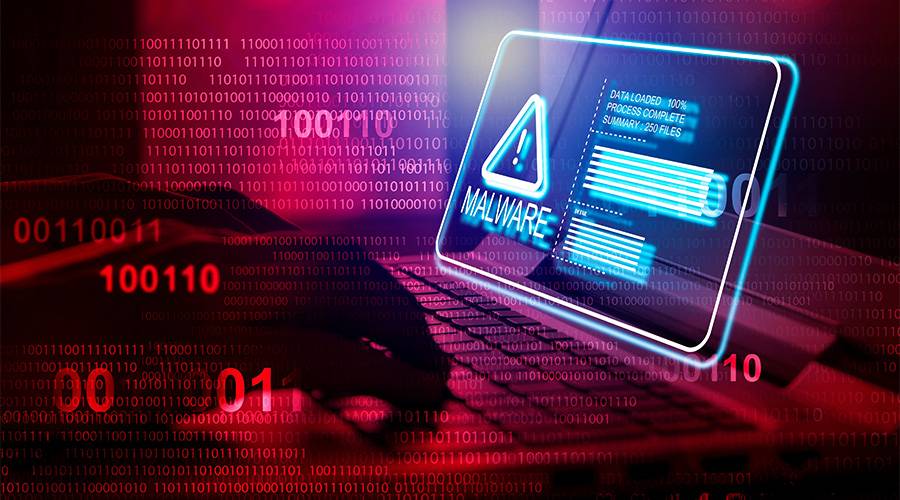-
Services
-
About us


Social Engineering: The Silent Threat to UK SMEs
Social engineering, the art of manipulating people rather than systems, is quietly undermining SME cyber security across the UK. It’s subtle, highly effective, and when it succeeds, the financial and reputational cost can be catastrophic.
As a next-generation MSP, we believe understanding social engineering, recognising the risks, and taking proactive measures is essential for growth, resilience and trust.
What is social engineering?
Social engineering is the use of psychological manipulation to trick individuals into divulging confidential information, giving system access, or taking actions that compromise security. Unlike malware or ransomware, social engineering exploits people, not technology.
Common forms include:
- Phishing: Mass emails that appear legitimate but contain malicious links or attachments.
- Spear phishing: Targeted emails aimed at specific employees, often using personal or company information.
- Business Email Compromise (BEC): Attackers impersonate senior management or trusted partners to trick staff into transferring money or revealing sensitive data.
- Pretexting: Creating a fake story or identity to gain confidential information, e.g., posing as IT support or a regulator.
- Vishing & smishing: Voice calls or SMS messages designed to deceive and extract information.
Why SMEs are especially vulnerable
SMEs face unique challenges that make social engineering particularly dangerous:
- Limited in-house cyber security expertise: Many SMEs rely on outsourced or shared IT support, which can result in slower response times and less tailored protection.
- Fewer resources for security: Smaller budgets often mean less investment in advanced detection tools, staff training, or continuous monitoring.
- Flexible processes can skip verification: In the rush to approve transactions or onboard clients, crucial security checks are sometimes overlooked.
- High impact of breaches: A single successful attack can have disproportionate consequences, affecting finances, operations, and client trust.
Recent studies highlight just how significant these risks are:
- Stolen or compromised credentials are among the top initial attack vectors, contributing to 27% of UK breaches (IBM, 2024).
- Phishing attacks affect 85% of UK businesses annually, with millions of SMEs targeted each year (UK Gov, 2025).
- The average UK data breach costs £3.58 million, rising steadily year-on-year (IBM, 2024).
These figures highlight how widespread social engineering has become, making it essential for SMEs to take practical steps to protect their business.
Examples of social engineering attacks
Understanding the ways attackers operate can help SMEs stay vigilant. Some typical scenarios we see:
- Fake invoice / supplier fraud: A supplier email requests a bank account change. Without proper verification, funds are sent to the attacker.
- Spear-phishing senior staff: An email mimics a managing director or finance director, asking staff to share sensitive information or login credentials.
- Compromised credentials: Password reuse or leaks from other services allow attackers to access internal systems.
- Impersonation via phone or SMS: A staff member receives a call or text posing as IT support, prompting immediate action that breaches security.
Even a single successful attempt can result in financial loss, reputational damage, and operational disruption.
Best practices to protect your SME
Defending against social engineering requires a combination of people, processes, and technology. Here are practical steps SMEs can implement today:
1. Awareness and training
Regular training helps employees recognise phishing emails, smishing texts, vishing calls, and other social engineering tactics. SMEs can run phishing simulations with platforms like KnowBe4 and provide interactive courses for both office and remote teams. Training should focus on spotting suspicious links, verifying sender addresses, and reporting incidents quickly.
2. Policies and verification
Verification protocols are key to preventing fraud and data exposure. Any request to change a bank account should be confirmed through a different method. This could be a phone call to a verified supplier contact. Organisations should enforce multi-factor authentication (MFA) across all critical systems using Microsoft Authenticator or Google Authenticator.
3. Technical defences
A robust technical strategy combines hardware, software, and configuration. Email security solutions like Mimecast, Microsoft Defender for Office 365 filter phishing emails and attachments. Endpoint Detection and Response (EDR) tools such as SentinelOne, CrowdStrike, or Microsoft Defender monitor devices and isolate threats.
4. Automation and AI
Automation and AI reduce response times and enhance detection. Solutions such as Managed SIEM alert IT teams to unusual activity. EDR solutions can automatically isolate compromised devices. SMEs using AI and automation often see lower breach costs and faster incident containment.
5. Incident response planning
A clear response plan minimises breach impact. Define roles for reporting, containment, and communication. Procedures should cover isolating affected devices, changing passwords, engaging MSP support, and reviewing logs. Regular simulation exercises ensure staff and leadership know how to act during an incident.
6. Regular auditing and testing
Auditing and testing reveal weaknesses before attackers do. Conduct phishing simulations, penetration tests, and access audits. Identify shadow IT and review vendor security to reduce risk from third-party breaches.
7. Culture and leadership support
Security should be part of company culture. Encourage staff to report mistakes without fear, and ensure leadership visibly supports security initiatives. Recognising secure behaviours and communicating that cyber security protects growth reinforces accountability across the organisation.
Preparing for the future
Social engineering attacks are evolving rapidly. SMEs should prepare for:
- AI-driven attacks: Deepfake audio, automated spear-phishing, and impersonation using synthetic identities.
- Credential reuse & compromise: Strong, unique passwords and MFA are non-negotiable.
- Regulatory compliance: GDPR and UK data laws mean breaches carry legal and reputational consequences.
- Integrated security: Security must be built into cloud services, remote working policies, and third-party integrations.
- Proactive technology investment: AI, automation, and monitoring reduce both risk and response times, as evidenced by reduced breach costs in AI-enabled SMEs.
Immediate steps you can take
Even small steps today can prevent significant losses tomorrow:
- Run a phishing simulation to identify vulnerabilities.
- Ensure that you enable MFA on all critical accounts.
- Implement verification processes for sensitive financial or data requests.
- Update or create a robust incident response plan.
- Audit your vendors and third-party integrations for security gaps.
Transforming vulnerability into strength
Social engineering may be the silent threat undermining UK SMEs, but it doesn’t have to be your weak link. By using the right mix of awareness, culture, process, and technology, you can turn this threat into a managed risk. This will help your business operate smarter, faster, and more securely.
As a security-focused MSP, we help SMEs build robust technology infrastructures for current protection and future growth. Our proactive, people-first approach to cyber security keeps your business secure so you can focus on running and expanding your business.
Get in touch with us today to see how we can make your technology safer, smarter and more reliable.
You May Also Be Interested In

Cyber Security
IT Tips & Advice
Insights
12 Cyber Tips of Christmas
10/12/2025

Business Intelligence
IT Tips & Advice
Insights
Essential Data & BI KPIs Every Leader’s Dashboard Should Include
08/03/2025

IT Tips & Advice
Insights
How to Plan Your IT Budget: 9 Tips for Planning Ahead
25/10/2023